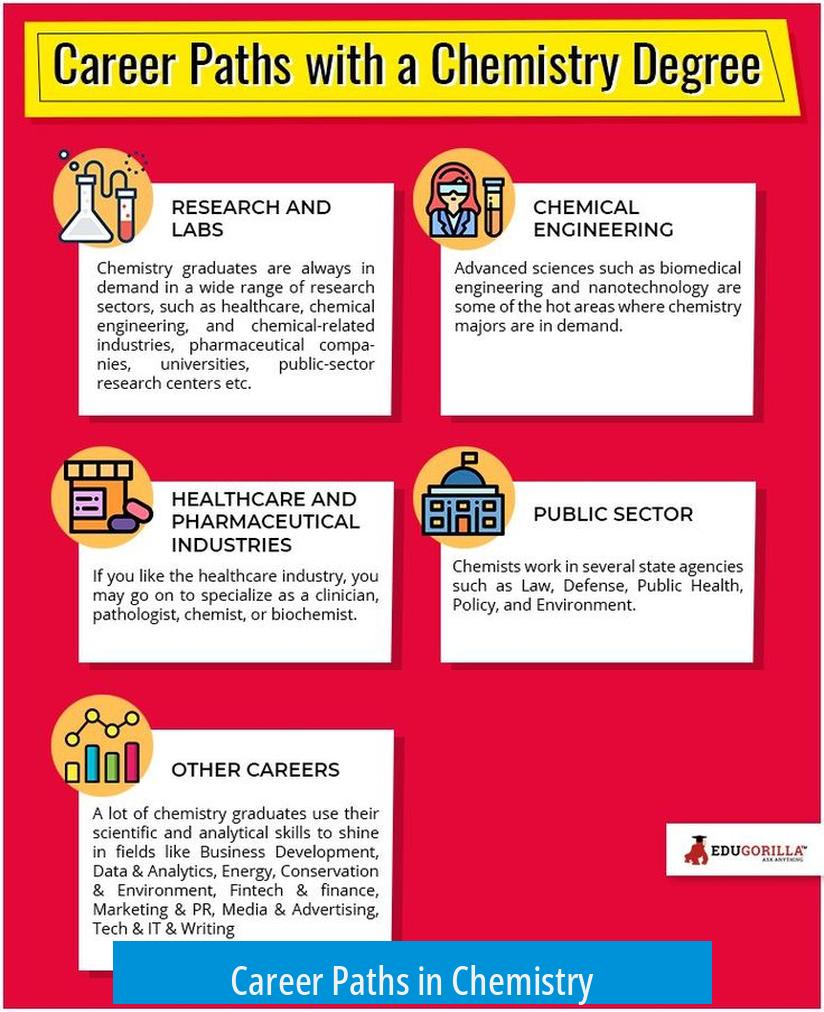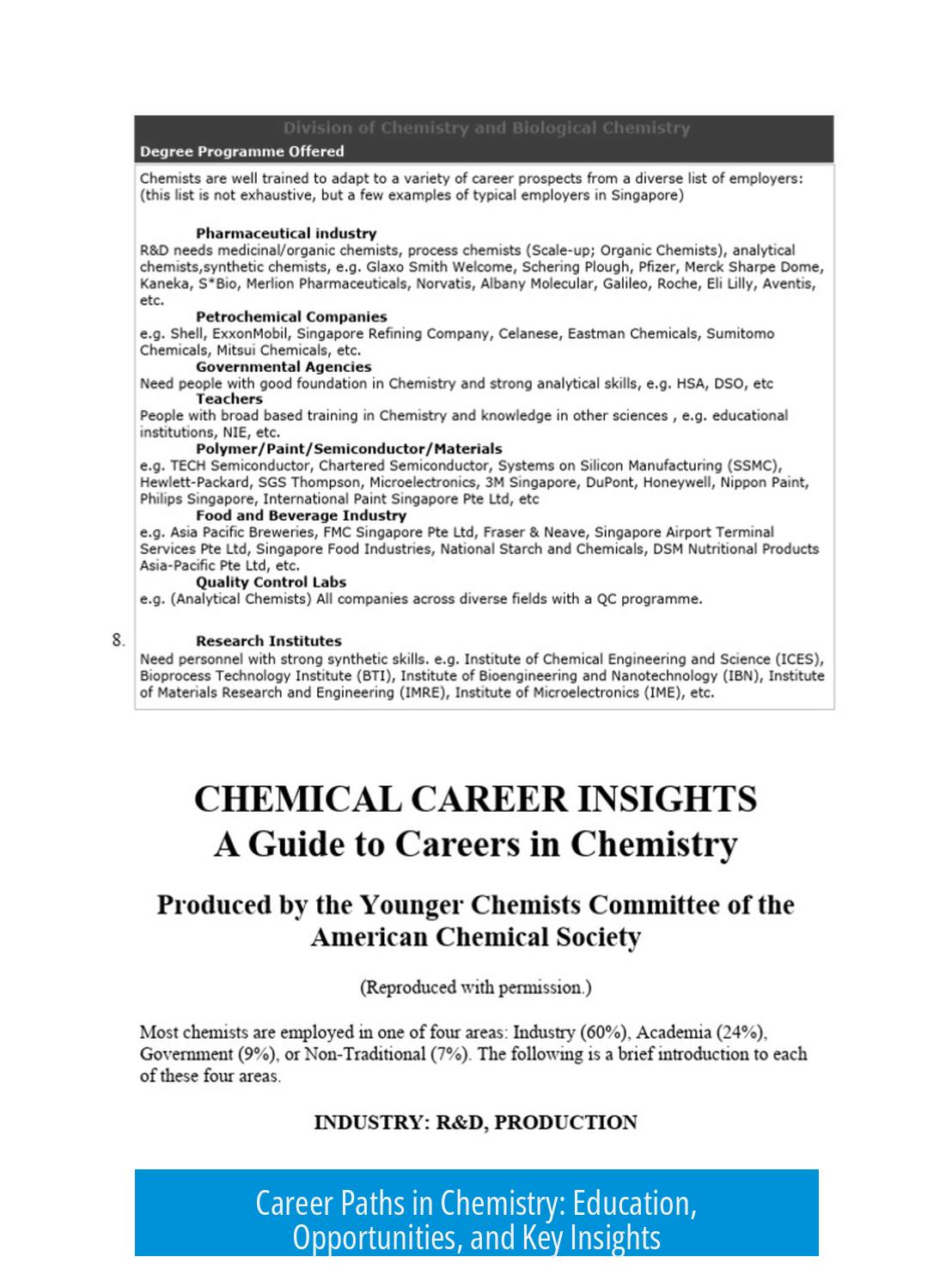Career Paths in Chemistry

Chemistry offers diverse career paths, including research, laboratory work, teaching, and roles in business or law. Choosing the right path depends on one’s interests, goals, and educational background.
Education and Career Decisions
Career direction in chemistry heavily depends on specific goals. A student unsure about fully committing to chemistry might consider chemical engineering. This approach provides early exposure to chemistry and options to switch programs if needed.
Choosing engineering can offer financial advantages. Engineers typically earn more than scientists. Additionally, engineering programs can be more competitive to get into than pure science programs, depending on the country. Transitioning from chemistry to related fields like physics or biology during college is relatively easy, widening career options.
Regarding pure chemistry degrees, the typical entry-level role includes working as a lab technician, which often yields lower salaries. This reality may influence decisions to pursue further education or switch fields.
Occupational Opportunities in Chemistry
Laboratory Sector
- Industrial laboratories focus on product development and quality control.
- Government labs conduct public health and safety research.
- Medical laboratories emphasize diagnostics and clinical tests.
- Chemical research technicians support experimental studies and data collection.
- Chemical engineering integrates chemistry principles to design processes.
Business Sector
With additional courses in management or business, chemists may advance to leadership roles in technical firms. This path leverages technical knowledge alongside managerial skills to oversee operations or product development.
Legal Sector
Chemists can apply their expertise within legal settings as paralegals in patent law offices. This role involves understanding chemical inventions and assisting with intellectual property processes.
Academic Sector
Academic careers range from technical positions in university labs to professorships. Typically, a higher degree like a PhD is required for research and teaching roles in academia.
Key Takeaways
- Chemistry careers vary widely, shaped by education and interests.
- Chemical engineering offers flexibility and higher earning potential.
- Lab roles are common but may have limited financial rewards initially.
- Business, legal, and academic sectors provide specialized career paths.
- Education beyond a bachelor’s degree expands job prospects.
What are the early college options for students unsure about a pure chemistry career?
Students unsure about pure chemistry can start in chemical engineering. This gives exposure to chemistry while opening chances to switch either to chemistry or stay in engineering.
How does a chemistry degree compare to an engineering degree in career prospects?
Engineering generally offers higher pay and demand. Chemistry degrees often lead to technician roles, which may have lower salaries initially.
What kinds of jobs are available in chemistry outside traditional labs?
Chemists can work in business management, patent law firms as paralegals, or pursue advanced academic roles with further education.
Can career paths in chemistry be changed easily during college?
Switching from chemistry to related fields like physics or biology is often straightforward since course overlaps are common.





Leave a Comment